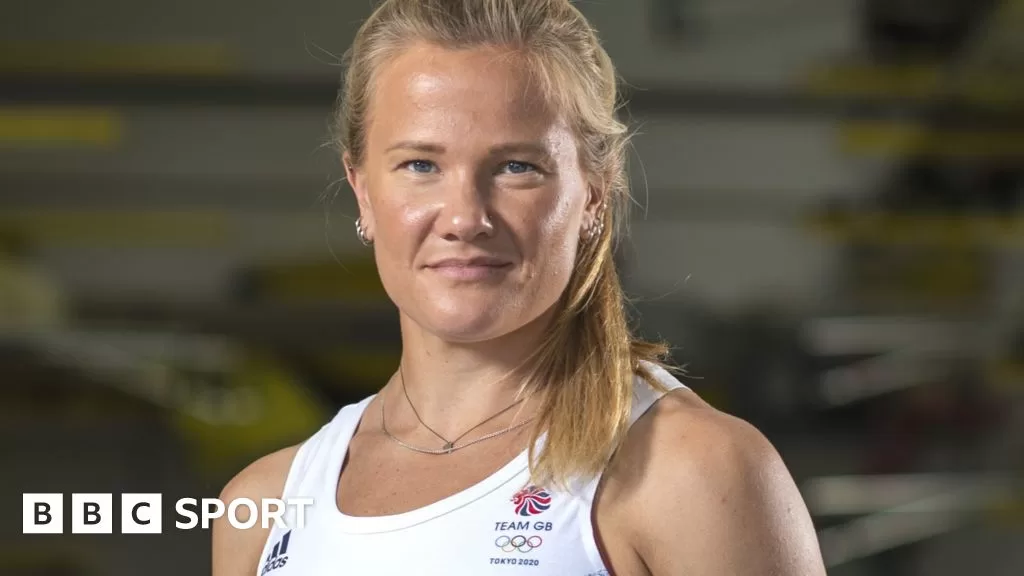Looking back, with hindsight, McMurtry can see the signs.
As a teenager, she would feel disconnected from others. She would clown around and join in the high jinks, but, emotionally, she was always one step removed; like it was a role she was obliged to play.
Sport was better.
“You are speaking through your actions rather than words – that is how you get respect,” she says.
“You are doing something, rather than just existing. There is a common purpose, there is a point to being together – there was so much about sport that spoke to how my brain works and it allowed me to socialise in a useful way.”
McMurtry signed up to as many after-school clubs as she could. Gymnastics was initially her favourite. She loved doing flips in the park or walking on her hands. But one summer, she returned and found something had changed.
“The squeaky sound of feet on the floor, the echo and the lights on the floor was so overwhelming. I just couldn’t do it any more,” she says.
She found rowing when a local club in Southampton brought some stationary rowing machines into her secondary school. The mix of working in close harmony, but entirely individually, chimed with McMurtry.
“Rowing is a sport where you can be an individual within a wider team – you are in charge of your part of the equation but still part of the whole,” she says.
“It is very numbers based, it is very methodical, it is very rhythmical – everything is boxed up in neat sections.”
McMurtry quickly ticked off those boxes. As a 17-year-old, she was part of the Great Britain four who won silver at the World Junior Championships in 2009.
Rowing worked well for McMurtry and McMurtry worked well for British Rowing. Her talent didn’t come from its usual pools.
McMurtry grew up on a council estate. Her home clubhouse wasn’t attached to a private school or located in a leafy London suburb. Instead, she rowed for Coalporters in Southampton – a club established by workers delivering coke to ships and more used to racing in choppy coastal waters, than pristine boating lakes.
She was a figurehead in the sport’s attempts to widen its appeal. But, switching into the Great Britain set-up, McMurtry found it hard to fit in.
Some of it was cultural.
“I was the only kid from a state school at those World Junior Championships and I felt it,” she says.
“The jokes, the things people would say, what they would assume you know and don’t know.
“I was so disgusted with myself when I left – I felt fat, worthless and stupid.”
Some of it though, was thought to be medical.
In 2014, as her mental health suffered and frustrations with the Great Britain set-up intensified, McMurtry was diagnosed with bipolar disorder – a condition characterised by fluctuations between extreme emotional highs and bouts of depression.
She was proscribed lithium, lamotrigine and quetiapine, a potent mix of anti-psychotic and mood-stabilising drugs.
“That medication poisoned me,” says McMurtry.
“It sounds like an exaggeration, but it is not. There are photos of me that make we want to cry; my skin is all sallow, my hair is falling out, my nails are chipping. I put on 8kg because that is what lithium does to you.
“Quetiapine is the most potent though. If I took that the night before and drove to training the next morning I felt as though I might drive into a bush. The world would be spinning.”
McMurtry spent five years medicated; training hard, feeling bad and struggling for selection, before a new performance director – Brendan Purcell – revisited her diagnosis.
He sent her to the newly-established UK Sport Mental Health Expert panel. , externalTheir conclusion was radically different. McMurtry did not have bipolar disorder. She didn’t need the pills and their side effects.
Instead, she was, is, and always has been autistic. Her brain didn’t need to be fixed or tweaked, just understood by those around her.
Autistic people can find communication harder. Or reading others’ feelings difficult. Loud noise or bright lights can overload their senses. The inter-personal politics of a workplace can seem irrational and impossible to navigate.
By changing the environment around her, rather than her own brain chemistry, McMurtry found the freedom to exist and perform unhindered.
Together with the panel, she drew up a three-point plan. The team nutritionist was asked to provide McMurtry with bland food, as highly flavoured or spiced options were overwhelming. The coaches were asked to avoid asking her open-ended questions in the morning and to provide a sum-up at the end of team briefings to ensure they had been understood.
The Covid pandemic then freed up McMurtry, along with her team-mates, to oversee their own training, working on ergo machines, weights and agility sessions in isolation.
A set-up that had previously demanded uniformity in approach, as well as on the water, now allowed for more personalisation.
McMurtry prospered. She shed seconds from her times. And at the Tokyo Olympics in 2021, she represented Great Britain at the highest level, rowing in the eight.
“I just gave myself permission to be different,” she says. “For years and years, I was bending over backwards trying to fit the mould which I just didn’t fit into.
“It is about expanding the parameters of acceptable difference.”
